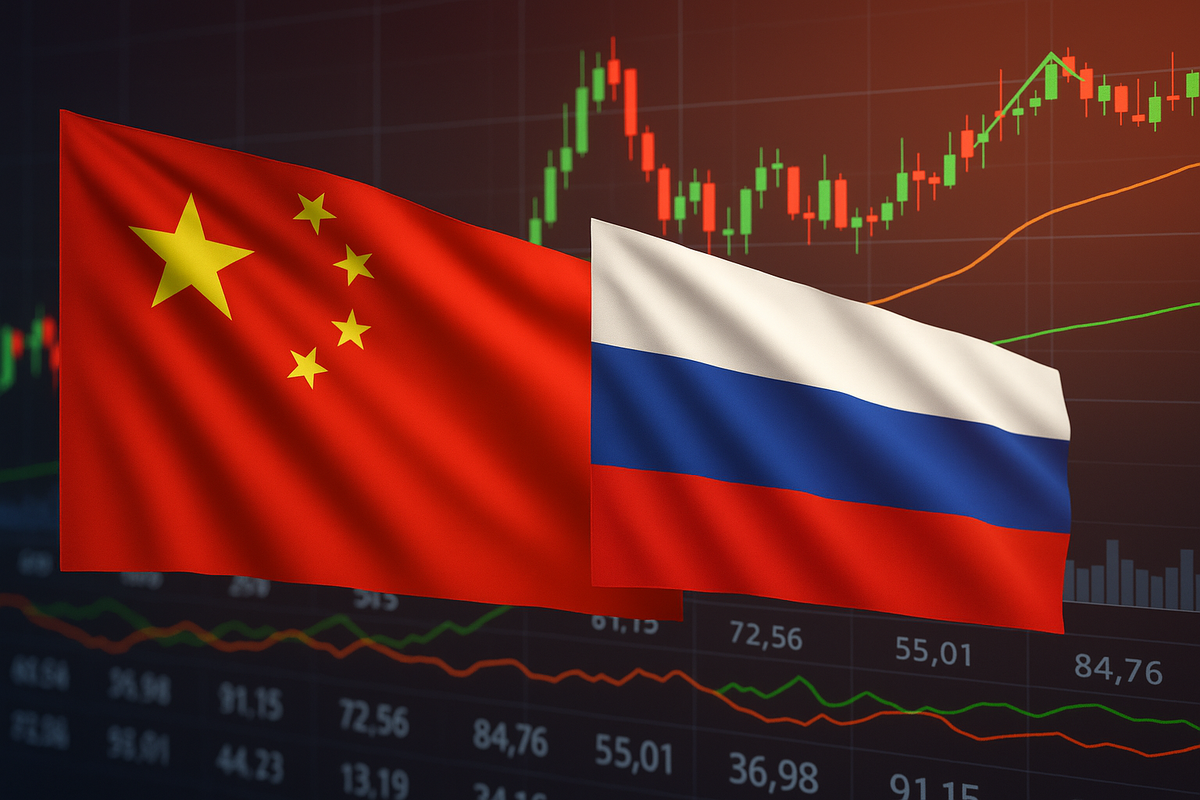China Paves Way for Renminbi Fundraising by Russian Energy Giants
China opens RMB fundraising channels to Russian energy giants, reinforcing Beijing’s currency internationalization and reshaping Asia finance.

Beijing enables cross-border financing shift
China is moving to broaden the role of the renminbi (RMB) in international energy financing, offering Russian energy producers new access to capital markets amid persistent Western sanctions. The decision signals a further integration of Russia into Asia’s financial orbit and underscores Beijing’s ambition to internationalize its currency in strategic sectors.
Background: Sanctions and Currency Realignment
Since 2022, Russian state-linked energy companies have been largely cut off from dollar and euro financing channels following coordinated sanctions by the United States and the European Union. Access to international capital has been restricted, while trade settlements increasingly shifted toward non-Western currencies.
The renminbi has emerged as the principal alternative. According to data from the Bank of Russia, more than 50% of trade between Russia and China is now conducted in RMB. The extension of fundraising channels represents a structural deepening of this financial shift, moving beyond trade settlement to investment capital and debt issuance.
Policy Signals from Beijing
Recent statements from China’s State Administration of Foreign Exchange (SAFE) and the People’s Bank of China (PBoC) point to regulatory adjustments that will allow selected Russian corporations to issue renminbi-denominated bonds in mainland markets and through offshore platforms such as Hong Kong. The objective is twofold: expand demand for RMB assets and reinforce China’s role as a financial hub for sanctioned economies.
The policy shift is aligned with Beijing’s broader strategy to reduce global dependence on the U.S. dollar, particularly in commodities pricing and settlement. By opening fundraising channels to Russian firms, Chinese regulators also test market appetite for RMB-denominated instruments linked to high-demand energy exports such as crude oil and natural gas.
Implications for Russian Energy Companies
For Russian producers such as Gazprom, Rosneft, and Novatek, the ability to raise capital in renminbi represents a significant strategic adjustment. Debt financing in Chinese currency provides access to Asia’s deepening liquidity pools and partially offsets the loss of Western credit markets.
However, reliance on the RMB exposes Russian issuers to exchange-rate volatility and regulatory oversight from Beijing. The yuan remains subject to capital controls, and foreign investors continue to face convertibility constraints. Nevertheless, in the absence of alternatives, the renminbi option is regarded by Russian entities as a pragmatic solution.
Market Outlook and Investor Response
Initial issuance volumes are expected to remain modest, with pilot transactions likely in Hong Kong’s dim sum bond market before expanding into mainland China’s interbank bond market. Institutional investors in Asia, particularly Chinese banks and state-owned funds, are anticipated to absorb the bulk of demand.
The attractiveness of RMB-denominated Russian energy debt for non-Chinese investors remains uncertain. Credit risk assessments remain elevated due to sanctions and geopolitical exposure, limiting broader participation. Still, higher yields and implicit state backing could generate selective interest, especially among investors aligned with China’s Belt and Road Initiative.
Strategic Consequences
The move underscores how geopolitical fragmentation is accelerating the development of alternative financial architectures in Asia. The renminbi’s role in Russia’s energy financing highlights a convergence of economic necessity for Moscow and strategic currency ambitions for Beijing.
For international finance, the development further entrenches a multipolar structure where Western sanctions push capital flows eastward. If successful, renminbi fundraising by Russian energy giants may become a model replicated in other sanctioned jurisdictions, expanding the RMB’s footprint in global energy markets.
